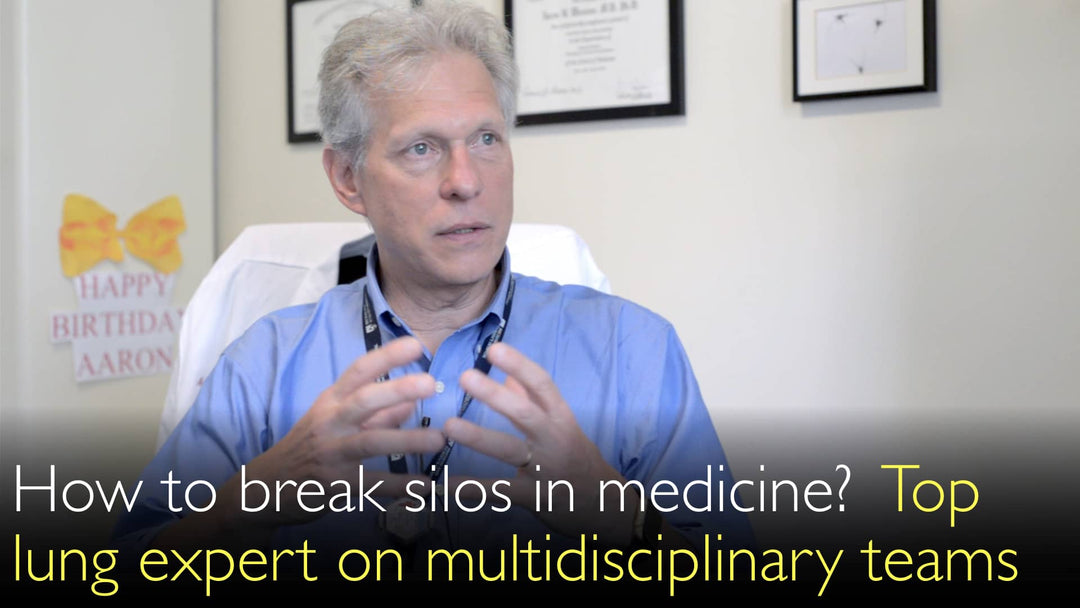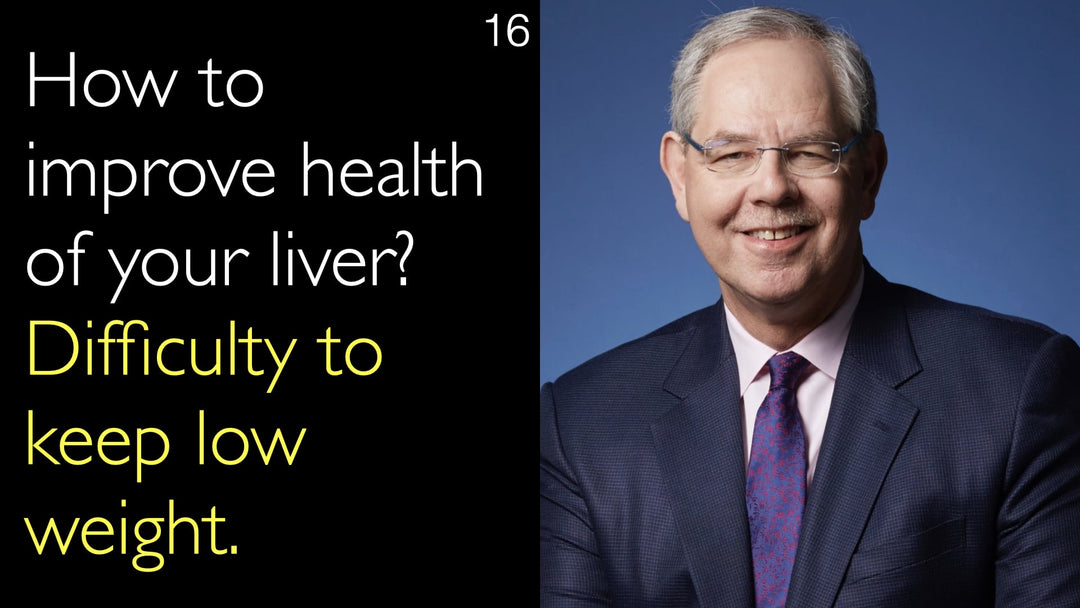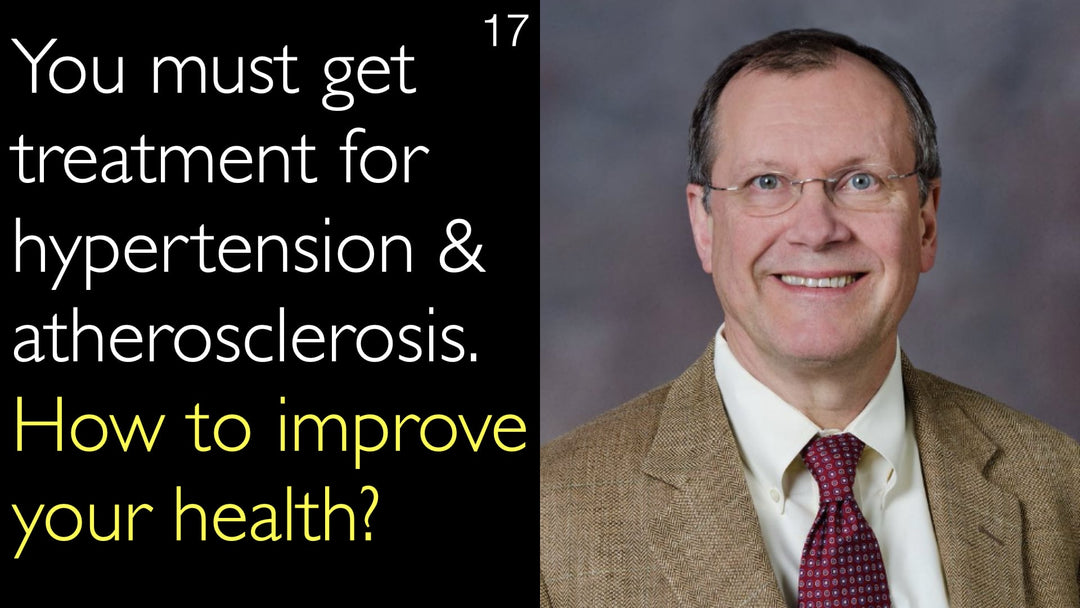Leading expert in pulmonary arterial hypertension and heart failure, Dr. Aaron Waxman, MD, explains how breaking down medical silos is essential for accurate diagnosis and optimal treatment. He advocates for a multidisciplinary team approach to complex conditions like pulmonary hypertension. Dr. Waxman details an innovative percutaneous Potts shunt procedure developed through collaboration. He emphasizes that patients must seek out centers with open-minded, out-of-the-box thinking to ensure they receive the best possible care.
Multidisciplinary Approach to Pulmonary Hypertension and Heart Failure Diagnosis and Treatment
Jump To Section
- Breaking Medical Silos for Better Care
- The Multidisciplinary Center Model
- Innovative Percutaneous Potts Shunt
- The Patient Perspective on Silos
- The Critical Importance of a Correct Diagnosis
- Full Transcript
Breaking Medical Silos for Better Care
Dr. Aaron Waxman, MD, identifies the "silo approach" as a major limitation to innovation in modern medicine. He describes this as a narrow, tubular vision where specialists work in isolation. This fragmented system can prevent the collaborative thinking necessary for tackling complex diseases. Dr. Waxman argues that moving beyond these silos is fundamental to achieving unbiased and precise diagnoses.
The Multidisciplinary Center Model
The solution to medical silos is creating multidisciplinary medical centers. Dr. Aaron Waxman, MD, helped develop a center for pulmonary heart disease that brings together a diverse team of experts. This team includes interventional cardiologists, pulmonologists, intensive care specialists, and thoracic surgeons. By fostering collaboration among these specialists, the center encourages novel approaches to treating conditions like pulmonary arterial hypertension.
Innovative Percutaneous Potts Shunt
A direct result of this collaborative model was the development of a percutaneous Potts shunt procedure. Dr. Aaron Waxman, MD, explains that this innovative treatment was designed for patients with advanced pulmonary arterial hypertension who had exhausted all other options. The procedure involves creating a bridge from the aorta to the left pulmonary artery and placing a stent, acting as a "blow-off valve." This technique, developed with colleagues, provides a bridge to lung transplantation while maintaining upper body oxygenation.
The Patient Perspective on Silos
Dr. Aaron Waxman, MD, highlights how medical silos directly impact patient care pathways. He notes that healthcare structures often funnel patients into fixed referral patterns within a single institution. For a patient with a rare or difficult disease, this may not be the optimal path. Dr. Aaron Waxman, MD, stresses that patients should seek assessment from a multidisciplinary team capable of thinking outside the box to improve their quality of life, even when a cure is not possible.
The Critical Importance of a Correct Diagnosis
Ultimately, the goal of multidisciplinary care is to obtain a precise and complete diagnosis. Dr. Waxman observes that patients, empowered by the internet, are increasingly becoming their own advocates and seeking out expert centers worldwide. He notes that patients often travel long distances to his dyspnea program for answers. Dr. Anton Titov, MD agrees, concluding that getting the right diagnosis is paramount for patients, providing clarity even when a treatment cannot offer a complete cure.
Full Transcript
Dr. Anton Titov, MD: How to break silos in medicine? Leading lung expert. In the era of precision medicine, every patient must be evaluated by a multidisciplinary team of top-notch experts. This is the only way to ensure unbiased, correct, precise diagnosis and the best treatment for each patient. Leading intensive care and heart failure expert illustrates.
Dr. Anton Titov, MD: Is there anything else you'd like to discuss?
Dr. Anton Titov, MD: Is there any topic that you would like to expand upon?
Dr. Aaron Waxman, MD: The biggest issue about my observations in medicine is this. We touched on that topic earlier. It is the whole silo approach to medicine today. Narrow tubular vision is probably one of the biggest limits to innovation in medicine.
Dr. Aaron Waxman, MD: One of the wonderful things about here is the sense of a multidisciplinary collaborative approach. We focus on pulmonary arterial hypertension and heart failure. We are setting up these multidisciplinary medical centers.
Dr. Aaron Waxman, MD: I was asked to develop the center for pulmonary heart disease. The concept is that we'd bring in surgeons, internists, and radiologists. We collaborate with all specialties who purely have interest in the area of lung disease.
Dr. Aaron Waxman, MD: This is what we are focusing on. It is pulmonary arterial hypertension; it is right-sided heart failure. Within our center for pulmonary heart disease, we have subsets of interested parties. It includes interventional cardiologists, pediatric cardiologists, pulmonologists, intensive medical care experts, pulmonary vascular disease-focused physicians, and surgeons.
Dr. Aaron Waxman, MD: Surgeons focus on both thoracic and cardiac disease. Everybody has a common overlap at some point.
Dr. Anton Titov, MD: You bring all these experts into a room together. You start talking about topics of pulmonary heart disease. Then you come up with ideas of novel approaches to treatment of pulmonary arterial hypertension and heart failure.
Dr. Aaron Waxman, MD: One treatment method that came out of that is this. We developed a method to do a percutaneous Potts shunt. It is used to treat pulmonary hypertension.
Dr. Aaron Waxman, MD: We took several patients who had advanced pulmonary arterial hypertension. These patients were treated to the limits of any treatment option. There was nothing more we could offer these patients with advanced pulmonary arterial hypertension. We could only proceed to lung transplant.
Dr. Aaron Waxman, MD: But lung transplant for pulmonary hypertension is a complicated process. We worked with our colleagues at Children's Hospital. We developed a treatment method where we could take these patients in the catheterization lab. We could create a bridge from the aorta into the left main pulmonary artery percutaneously.
Dr. Aaron Waxman, MD: We place a stent across that vascular bridge. We create a variable shunt that essentially worked as a blow-off valve. This was done without doing an atrial septostomy.
Dr. Aaron Waxman, MD: By doing it in the aorta to the left main pulmonary artery, you left the upper half of the body with normal oxygenation. And the lower half of the body had hypoxia. The result of that was obviously the kidneys kick in. A patient’s kidney started to produce more red cells, but it wasn't a problem.
Dr. Aaron Waxman, MD: It did help in the sense that it created a bridge that we could keep working on these patients and give them time to get transplanted. There is still lots of opportunity for improving something like that. But it is an example of how, if you get rid of the silos in medicine, you let people start interacting together and thinking freely.
Dr. Aaron Waxman, MD: Then you come up with approaches that people wouldn't have thought of on their own. This is very important, clearly. But also from a patient's perspective, it is important.
Dr. Aaron Waxman, MD: Another aspect of silos is something that is probably structurally also important. The way that healthcare is set up, at least today, it is very hard to get rid of the silos. This is the silo of any single medical institution or a hospital.
Dr. Aaron Waxman, MD: Because when a patient walks into the hospital, that hospital says this: "Okay, we will treat you; we are the best for you." Often the larger hospitals acquire physician group practices. Their referral patterns become fixed.
Dr. Aaron Waxman, MD: It sends all patients who walk into a physician's office on a certain path, which may be excellent, but may not be an optimal path for that patient. As a patient, you want to be assessed by a multidisciplinary team.
Dr. Aaron Waxman, MD: I have never had obviously a bad disease, but I have been a patient in a hospital for minor stuff. I would want a place that could think outside the box. Especially if I had a rare disease or a difficult disease, I'd be wanting someone to think about what else can I do here to try to improve the quality of life for that person?
Dr. Anton Titov, MD: It may not mean that I'm going to change survival dramatically, but at least improve upon the medical problem.
Dr. Aaron Waxman, MD: Because the truth is in medicine, and I'm not talking about internal medicine, we rarely cure things. I mean, sure, we cure infections and we cure some cancers, but most disease we manage long term. We don’t cure many diseases.
Dr. Aaron Waxman, MD: The better we learn how to manage with a goal towards finding a cure, the better off that patient's going to be.
Dr. Anton Titov, MD: You get into a place like here, where we have this multidisciplinary, open minded, out-of-the-box thinking processes going on. We serve a great purpose.
Dr. Aaron Waxman, MD: Worldwide also, modern technology allows us to go beyond any single institution and look at what's available. We know where the experts are located. We can transfer valuable information to them without perhaps even traveling.
Dr. Aaron Waxman, MD: It is interesting because, obviously, with the internet now, patients become often their own best advocates. Patients will find the options that are best for their treatment. As a result, our dyspnea program is an example.
Dr. Aaron Waxman, MD: We have had patients on their own find us and come from all over the world. I would say now pretty much every month we are seeing someone who has come a long distance to get an answer as to why they are short of breath.
Dr. Aaron Waxman, MD: Airline travel is not that expensive, of course; sometimes treatments are expensive. But compared to missed diagnosis and wasted money, the symptoms and the aggravation of the wrong treatment, that certainly is a much better solution. Getting an answer is usually very important to the patient.
Dr. Aaron Waxman, MD: Even if you can't make them better, they want to know, "What's wrong with me?"
Dr. Anton Titov, MD: That is very important, getting the right diagnosis, the precise and complete diagnosis.
Dr. Anton Titov, MD: Dr. Waxman, thank you very much for this very interesting conversation about lung disease and heart disease and lung vasculature. We hope to see your continued research and stem-cell research. We hope to come back to you with more questions in the future. Thank you very much!
Dr. Aaron Waxman, MD: Thank you, it was fun!







